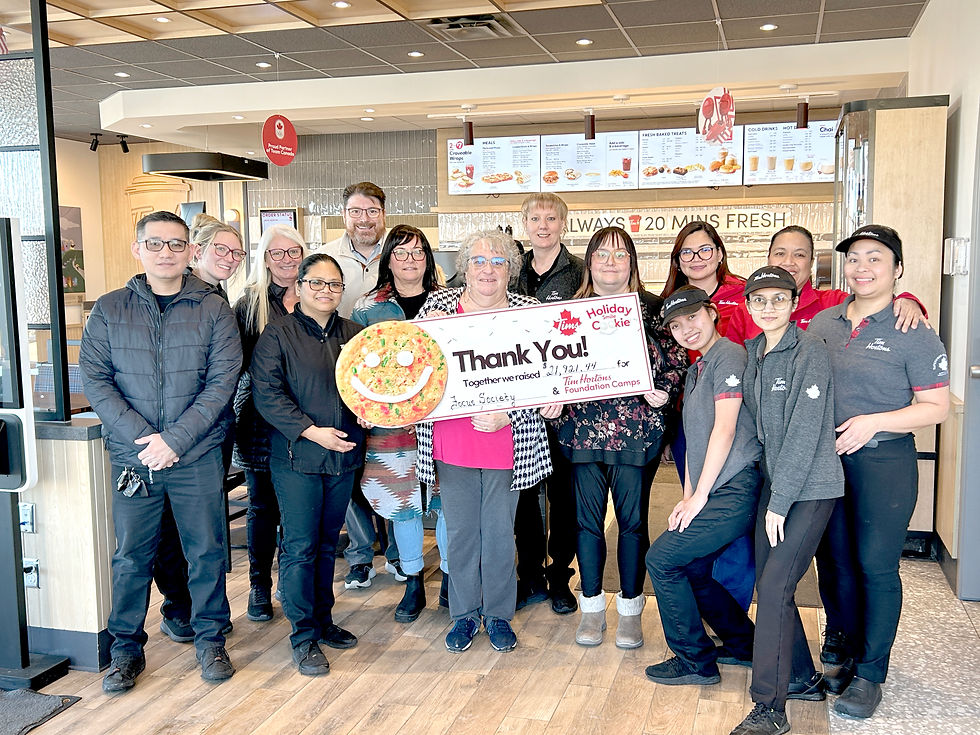Citizens On Patrol Workshop And AGM
- Submitted
- Oct 17, 2023
- 3 min read

On Tuesday, October 3, Vermilion Town Council and Sgt. Corey Buckingham of the Vermilion RCMP discussed the possibility of reviving Citizens on Patrol (COP) in the community to help combat theft. On October 13–15, the Lloydminster Citizens on Patrol Society hosted the Alberta Citizens on Patrol Association’s (ACOPA) annual general meeting and conference at the Lloydminster Agricultural Exhibition Association. There, experts and COP members from across Alberta and beyond shared information on building safer communities through ACOPA’s protocols.
The weekend began with retired RCMP member Robert Gollan providing a three-hour training workshop for first-time attendees. As 40 individuals from throughout Alberta and as far away as Barrie, Ontario and Chetwynd, British Columbia introduced themselves, the sense of collective pride in the organization was palpable. Some individuals described personal situations—a vehicle being broken into; a break-and-enter into their own home as they slept—that prompted them to “get out there and do something” and join their local COP. Others noted the deep sense of camaraderie in the organization and the shared commitment to keeping their communities safe.
Gollan proceeded to introduce the organization, noting that ACOPA was registered as a non-profit in 2002 and at its height had over 70 member organizations, but that since Covid, that number had dropped to about 45 and has not yet recovered. Vermilion is one of those communities that has had a COP group in the past, but it is no longer active, although the commitment of a few keen individuals could change that at any time.
Gollan emphasized that COPs are not vigilante groups, but instead follow a stringent set of training, rules, and procedures designed to keep both volunteers and community members safe. Furthermore, the groups’ liability insurance is dependent on COPs members following these carefully defined protocols.
Local COP organizations have five goals: (1) deterrence (through observation, documentation, and reporting), (2) education (about crime prevention and community safety), (3) awareness (increasing awareness of suspicious/dangerous/unusual activities and the presence of observant citizens), (4) safety (following the rules and procedures outlined in training), and (5) having fun (taking breaks and talking with other patrollers). “If you’re not having fun, you’re not gonna stay,” says Gollan, attesting to the level of enjoyment required to stay committed to this type of volunteerism.
Although ACOPA has province-wide training and goals, each local group is left to create their own unique bylaws. These may include times of patrols, types of patrols, community partnerships, and training beyond what is offered by ACOPA.
Community partnerships are especially important: the groups may offer to help out with local events (sometimes in exchange for a donation), talk to schools and town council about community-based patrols, provide updates to newspapers, and meet with other organizations such as Crimestoppers or Rural Crime Watch to work toward a shared mandate. Additionally, the relationships between ACOPA, the local RCMP detachment, and the local COP are central to the effectiveness of each organization. The foundational task of COP members is to “Pay attention. Get to know your community. Create and develop contacts,” says Gollan, emphasizing that cultivating a relationship with the local RCMP detachment is crucial for success.
Local RCMP detachments publicly share quarterly reports on Annual Performance Plans, and the priorities outlined here can help direct COP efforts. The RCMP crime map available online and a Call Load Analysis of calls to the local detachment can also be used to determine locations, times, and types of local COP patrols.
Some locales throughout the province have been experiencing escalating property crime numbers in the past few years, and Gollan explained that because police can only be on the road for so many hours, community-based patrols can help deter crime without putting pressure on the policing budget. Gollan describes COPs as “the eyes, ears, and voice of community policing,” and explains that “the policing of today understands that policing [alone] won’t fix crime in our communities… These are community issues, not [simply] police issues.”
With emergency services personnel reaching higher and higher levels of post-traumatic stress disorder (PTSD) and burnout, it is important for communities to identify various initiatives that can work together to ensure they have the tools they need to reduce and diffuse patterns of harm. Citizens on Patrol is just one potential piece of the puzzle of community vitality, with other pieces including mental health crisis response and de-escalation training, transformative and restorative justice practices, material needs such as housing and nutritious food, and social or recreational opportunities for all.
Individuals interested in forming and volunteering with a Vermilion-based organization can visit https://www.acopa.ca/start-citizens-patrol-group for more information, or share ideas with Town Council during one of their bi-weekly meetings. Citizens can also make basic police reports using the RCMP’s mobile application available on the Apple and Google app stores.




Comments